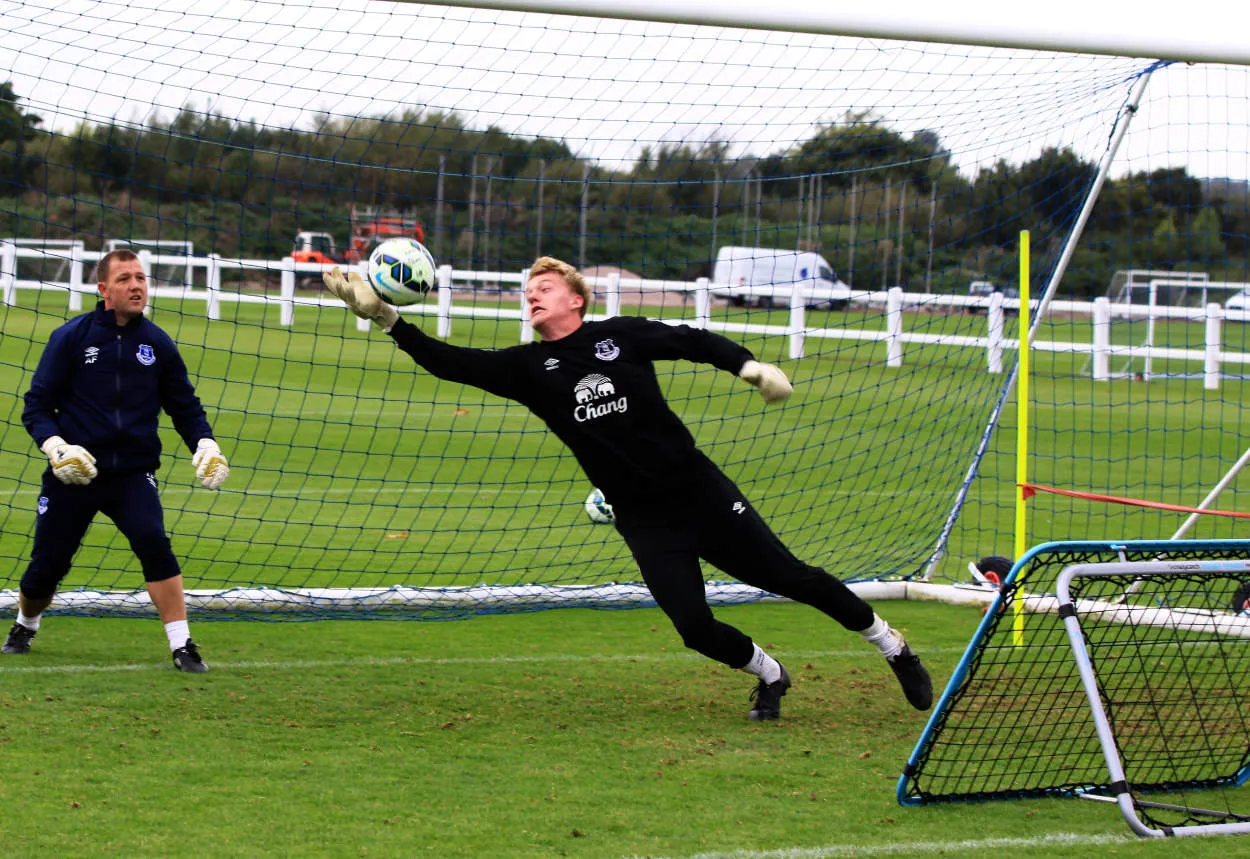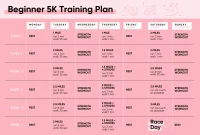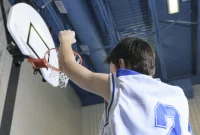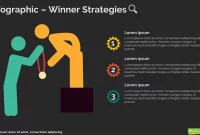Soccer Goalkeeping: Skills, Drills, and Techniques
Fundamentals of Goalkeeping
Goalkeeping is a crucial position in soccer, requiring a unique set of skills and techniques. A great goalkeeper can make a significant impact on a team’s success. Whether you are just starting as a goalkeeper or looking to improve your skills, here are some fundamentals to master:
Positioning
Proper positioning is essential for a goalkeeper. It involves being centrally placed between the goalposts, being aware of the angles, and adjusting positioning based on the ball’s location on the field.
Shot Stopping
A goalkeeper must have excellent reflexes and reaction time to stop shots on goal. This includes diving, blocking, and parrying shots with both hands and feet.
Communication
Effective communication is vital for goalkeepers to coordinate with their defenders. They must shout commands, provide instructions, and alert teammates of potential threats.
Aerial Ability
Goalkeepers often deal with crosses and high balls. Developing good aerial ability involves proper timing, judgment, and the ability to catch or punch the ball away from danger.
Distribution
A goalkeeper’s distribution plays a critical role in initiating counterattacks or setting up attacking opportunities for the team. Good distribution involves throwing, kicking, and passing the ball accurately and quickly.
Decision Making
In high-pressure situations, goalkeepers must make split-second decisions. This includes when to come off the goal-line, when to catch or parry a shot, and when to distribute the ball or hold on to it.
Mastering these fundamentals of goalkeeping will provide a solid foundation for any goalkeeper to excel on the field. However, it is important to continuously practice, learn from mistakes, and stay mentally and physically fit to become a top-class goalkeeper.
Advanced Goalkeeper Training
Goalkeeping is a crucial position in soccer and requires specific skills, drills, and techniques to excel. To become an advanced goalkeeper, it is essential to focus on various aspects of your game.
Footwork and Agility
Developing good footwork and agility is vital for goalkeepers. Agility ladder drills, cone exercises, and ladder hops can improve your quickness and ability to move swiftly in all directions. Practicing these drills regularly will enhance your reflexes and help you react faster to shots and crosses.
Diving and Shot Stopping
Mastering diving techniques is key to becoming an outstanding goalkeeper. Practice different types of dives, such as the forward dive, low dive, and high dive, to increase your range and effectiveness in saving shots. Work on your positioning and study your opponents’ shooting habits to anticipate their moves better.
Communication and Command
Goalkeepers are the eyes and voice of the team’s defense, so effective communication is crucial. Develop your vocal presence on the field, providing clear instructions to your defenders. Establish strong relationships with your teammates and establish a system of communication to ensure a well-coordinated defense.
Distribution and Ball Control
An advanced goalkeeper should be skilled in distributing the ball accurately and quickly. Work on your passing technique and practice throwing and kicking the ball with both feet. Having good ball control will allow you to initiate fast counter-attacks and maintain possession when needed.
Dealing with Crosses
Crosses can pose a significant threat to goalkeepers, especially in crowded penalty areas. Practice various techniques for dealing with crosses, such as punching, catching, or parrying the ball to safety. Anticipate the flight of crosses and learn to position yourself well to intercept or clear the ball effectively.
Decision Making and Mental Toughness
Being a goalkeeper requires quick decision making and mental toughness. Train your mind to stay focused and make split-second decisions under pressure. Work on your concentration and learn to bounce back from mistakes. Mental resilience is what sets apart exceptional goalkeepers.
Mental Toughness for Goalkeepers
Being a goalkeeper in soccer requires not only exceptional physical skills, but also mental toughness. Goalkeepers hold a crucial position on the field, responsible for protecting the team’s goal and making split-second decisions. Here are some key aspects of mental toughness that every goalkeeper should develop:
1. Focus and Concentration
Goalkeepers need to maintain unwavering focus throughout the entire match. They must be able to block out distractions and stay fully engaged in the game. By staying mentally present, they can react quickly to save shots and anticipate the opponents’ moves.
2. Resilience
Mistakes and setbacks are inevitable, even for the best goalkeepers. Mental toughness allows goalkeepers to bounce back quickly from errors, learn from them, and continue performing at their best. They should remain confident and not let one mistake affect their overall performance.
3. Confidence
Goalkeepers should have unwavering confidence in their abilities. Believing in oneself is crucial for making split-second decisions and taking calculated risks during intense game situations. A confident goalkeeper inspires trust and provides a sense of security to the rest of the team.
4. Emotional Control
Soccer can be an emotionally charged sport, and goalkeepers often face pressure and criticism. It’s important for goalkeepers to maintain emotional control and not let negative emotions affect their decision-making or performance. They need to stay level-headed and focused on the game.
5. Adaptability
Goalkeepers should be adaptable and able to adjust their strategies and techniques based on the specific game situations. Mental toughness enables them to quickly analyze the opponents’ patterns, make necessary adjustments, and stay ahead of the game.
Developing mental toughness is an ongoing process for goalkeepers. By honing these skills, they can elevate their performance and become an indispensable asset to their team.
Injury Prevention for Soccer Goalies
Soccer goalkeeping is a physically demanding position that requires a high level of agility, flexibility, and strength. It is essential for goalkeepers to prioritize injury prevention in order to maintain their performance and longevity on the field. Here are some key tips to help soccer goalies prevent injuries:
1. Proper Warm-up and Stretching
Before every training session or match, goalkeepers should engage in a thorough warm-up routine. This should include dynamic stretches and exercises that target the muscles used in goalkeeping, such as the legs, core, and shoulders.
2. Strengthening Core Muscles
A strong core is crucial for soccer goalies as it helps stabilize the body and allows for quick movements and dives. Incorporate exercises like planks, Russian twists, and medicine ball throws to strengthen the abdominal and lower back muscles.
3. Balance and Coordination Training
Goalkeepers should focus on improving their balance and coordination skills to prevent falls and reduce the risk of lower extremity injuries. Utilize exercises like single-leg squats, cone drills, and ladder drills to enhance balance and agility.
4. Proper Technique and Body Positioning
Learning and practicing proper goalkeeping technique is essential for injury prevention. This includes correct positioning, diving techniques, and distribution of weight during saves. Seek guidance from experienced coaches to ensure the correct form is maintained.
5. Rest and Recovery
Allowing the body enough time to rest and recover is crucial for injury prevention. Make sure to incorporate rest days into the training schedule and prioritize sleep to aid in muscle repair and overall well-being.
6. Use Protective Gear
Wearing appropriate protective gear, such as padded gloves, knee pads, and elbow pads, can help reduce the risk of joint injuries and abrasions. Ensure that the gear fits properly and is in good condition before each session.
7. Maintain a Healthy Lifestyle
Lastly, maintaining a healthy lifestyle plays a significant role in injury prevention. Focus on consuming a balanced diet, staying hydrated, and avoiding smoking or excessive alcohol consumption, as these factors can affect both performance and injury susceptibility.
Analyzing Professional Goalkeeper Performances
In the world of soccer, the role of a goalkeeper is crucial in defending the goal and preventing the opposing team from scoring. Professional goalkeepers undergo rigorous training to develop their skills, drills, and techniques. Let’s delve into the key aspects of analyzing the performances of these highly skilled individuals.
1. Shot Stopping
One of the primary responsibilities of a goalkeeper is to make crucial saves. Analyzing their shot-stopping abilities involves assessing their positioning, reflexes, and decision-making. A top-class goalkeeper must be able to anticipate the direction of a shot, react quickly, and make accurate saves.
2. Commanding the Penalty Area
A successful goalkeeper has excellent command over their penalty area. This includes effectively communicating with the defense, organizing the players’ positioning, and making decisive calls. Analyzing how a goalkeeper takes charge of their penalty area provides insights into their leadership skills and ability to control the game.
3. Distribution and Ball Control
Modern goalkeepers are required to be skilled with their feet and contribute to their team’s build-up play. Analyzing a goalkeeper’s distribution and ball control involves evaluating their ability to distribute accurate passes, throw the ball long distances, and participate in the team’s attacking plays when necessary.
4. Aerial Presence
When dealing with crosses and high balls, a goalkeeper’s aerial presence is vital. Their ability to claim crosses confidently, make effective punches, and dominate their area can be analyzed to understand their command in aerial situations. A strong aerial presence instills confidence in the defense and prevents opponents from capitalizing on crosses into the box.
5. Decision Making under Pressure
A goalkeeper often faces split-second decisions under intense pressure. Analyzing their decision-making skills in high-pressure situations, such as one-on-ones or when to come off the goal line, provides insights into their composure, judgment, and ability to make crucial saves when it matters the most.
By analyzing the performances of professional goalkeepers in these key areas, we can gain a deeper understanding of their strengths, weaknesses, and overall contribution to the team. As spectators and enthusiasts, appreciating the nuances of goalkeeping enhances our enjoyment and appreciation for this unique and demanding position in the world’s most popular sport.
Conclusion
In conclusion, becoming a skilled soccer goalkeeper requires a combination of technical skills, strategic thinking, and consistent practice. By mastering techniques such as footwork, diving, handling, and positioning, goalkeepers can enhance their ability to make crucial saves and contribute to their team’s success. Regularly engaging in goalkeeper-specific drills and exercises can help improve reflexes, decision-making, and overall performance. So, whether you’re a beginner or an experienced goalkeeper, remember to continually hone your skills and stay dedicated to your training to excel in this important position on the soccer field.




